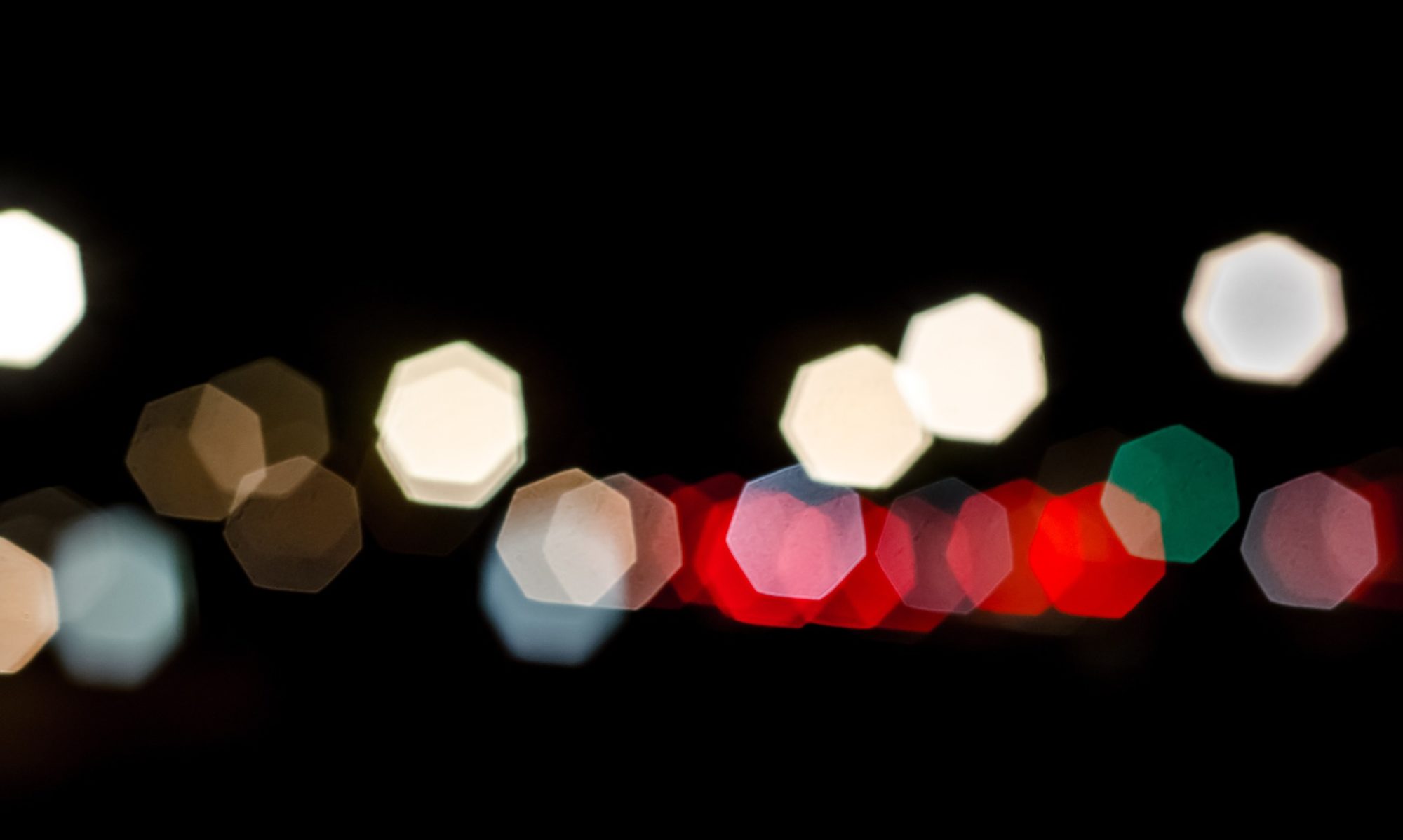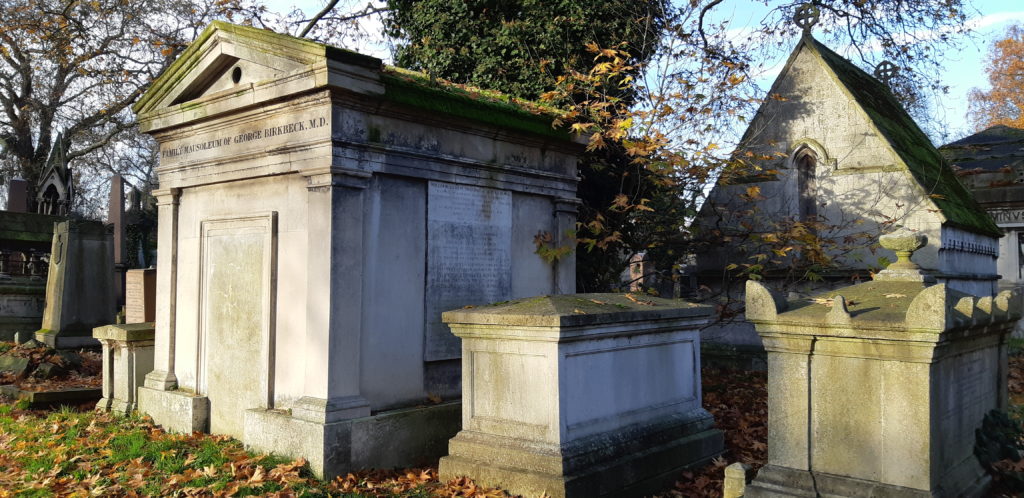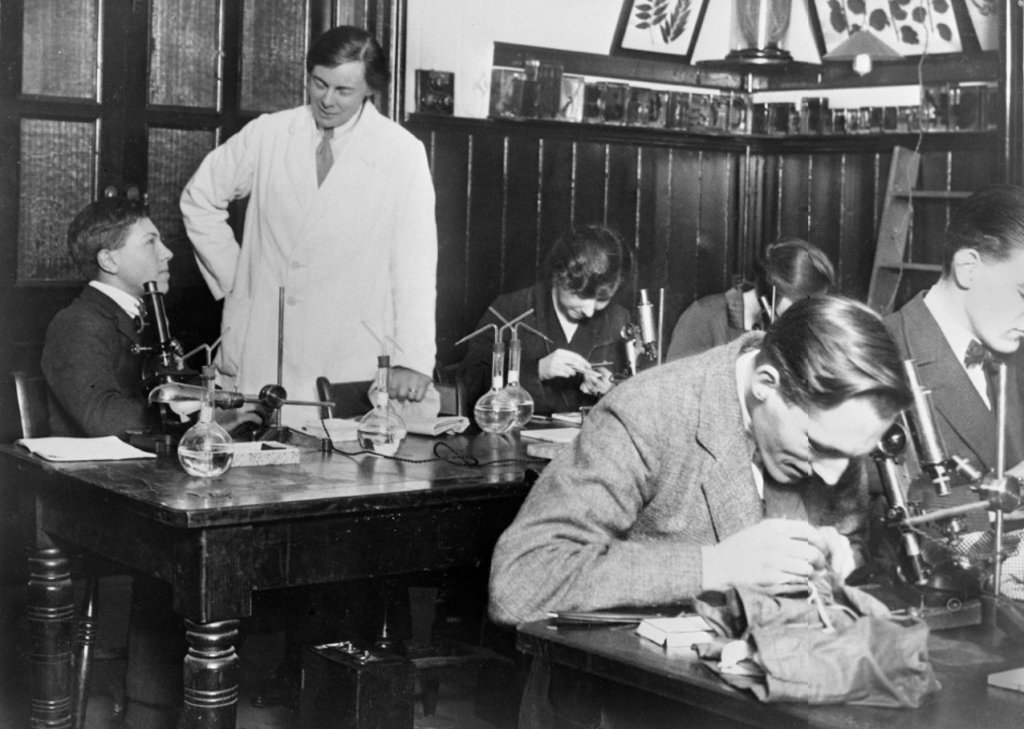At the heart of the university, an academic library space offers fertile possibilities for interdisciplinary research, cross-department discussion and serendipitous discovery. At Birkbeck we offer a variety of study spaces, diverse print and electronic resources, and specialist staff to support researchers. Since our refurbishment last summer, we’ve also been able to provide a space for teaching and events – something that had been lacking before.
This February, we utilised this new space to run a series of events celebrating both LGBT+ History Month and Love Data Week.
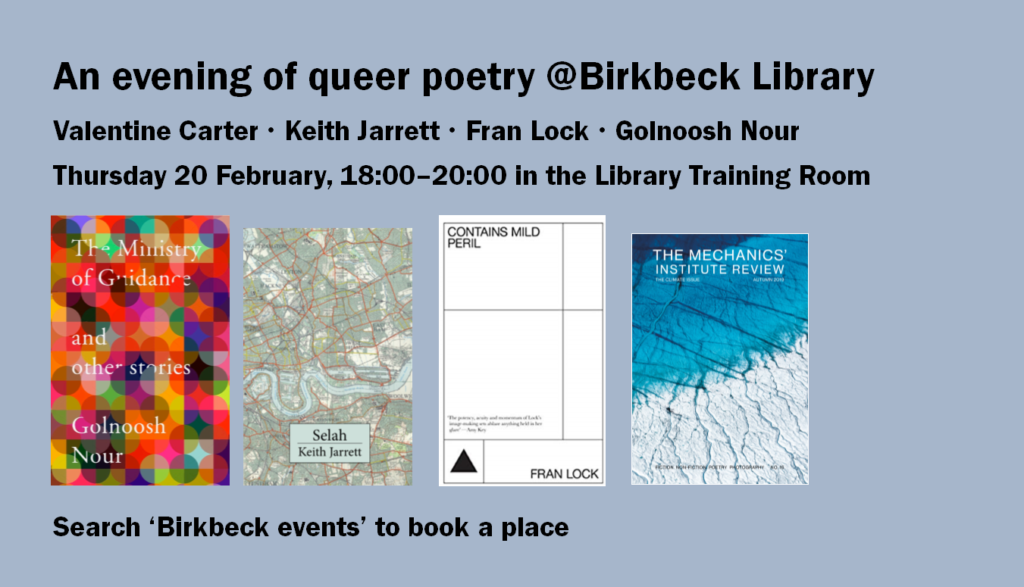
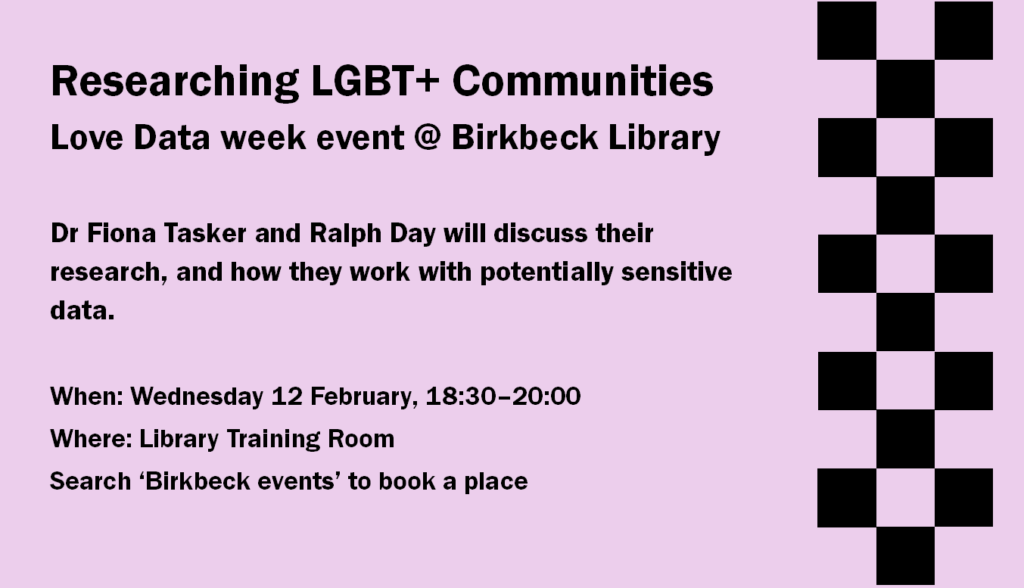
Founded in 2005, in the wake of the abolition of Section 28, LGBT+ History Month is well embedded in the UK library world, particularly in public libraries. At Birkbeck, we’ve celebrated the month with displays of LGBT+ books from across disciplines.
Love Data Week is an annual celebration of research data. It’s an international event, which has been hosted in the College by the Library for the last three years. Previous events have included interdisciplinary panels, workshops, and cross institution collaborations.
Library staff were able to draw from the wealth of experience of our academic staff and students to produce some enjoyable and thought-provoking events, culminating in a cross-over LGBT+ History Month/Love Data Week event.
The LGBT+ History Month events celebrated Birkbeck’s poets and writers from our Creative Writing department. Course Director for the MA in Creative Writing, Julia Bell, read extracts from her new book of essays Radical Attention. This was followed by a lively conversation with fellow lecturer Richard Hamblyn. Later in the month, we hosted an Evening of Queer Poetry with poets Fran Lock, Valentine Carter, Golnoosh Nour and Keith Jarrett. We hold many of the collections by these writers, as well as the full run of the Mechanics’ Institute Review, an annual literary review published by Birkbeck’s Creative Writing department.
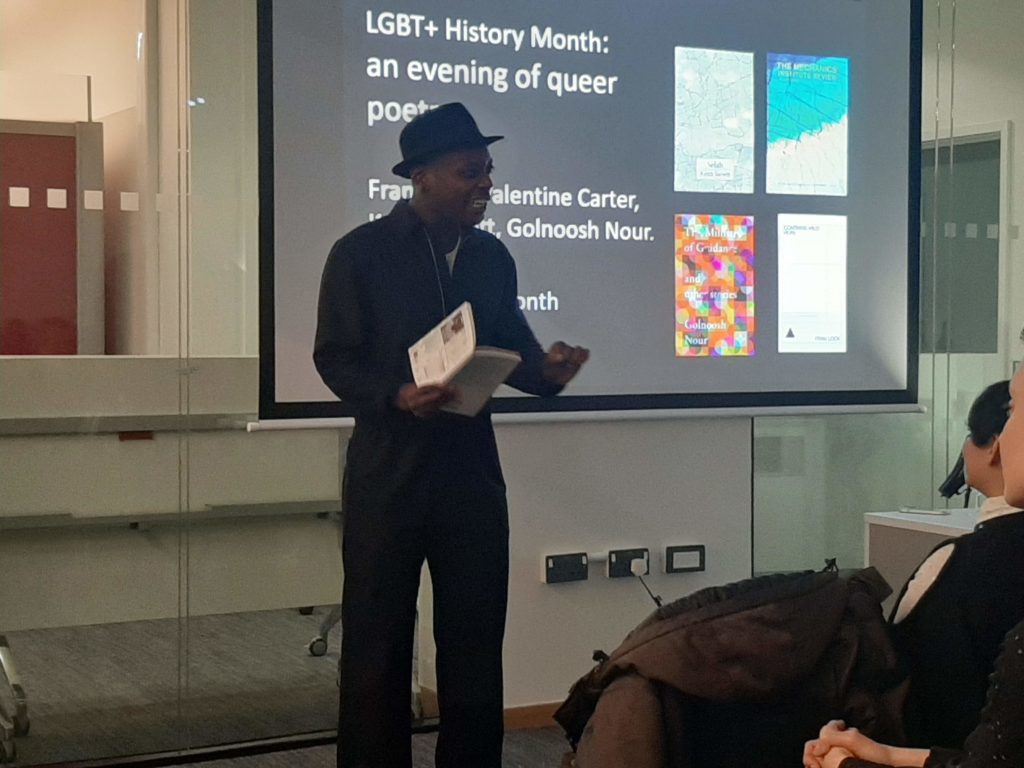
For Love Data Week 2020, we ran two training sessions: An Introduction to Research Data Management, and Data Management Plans for Postgraduate Students. Both were organised in collaboration with the Birkbeck Graduate Research School.
The LGBT+ History month/Love Data Week cross-over event was titled Researching LGBTQ+ Communities: openness, ethics and consent, and explored the interplay between open research and participant groups who may require anonymity. Two Birkbeck researchers, Fiona Tasker, an academic in the Department of Psychological Sciences and Ralph Day, a doctoral researcher in contemporary history, presented their work.
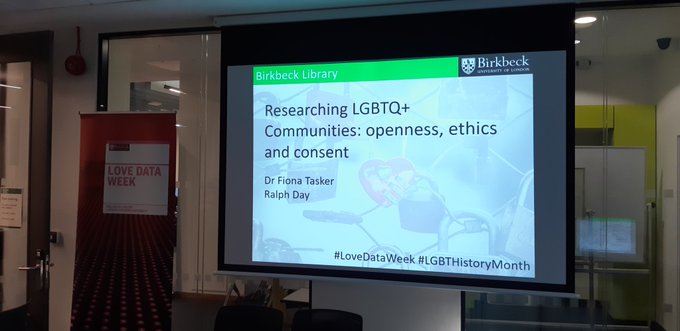
Fiona talked about her work with LGBT+ parents. She took us through the three ‘waves’ of research on same sex parenting mothers, then presented some ideas from her work on a fourth wave. She also showed very interesting data from the Empowering Adoptive Families survey on adoption for non-traditional parents, and alternative data from the family mapping exercise. A copy of Fiona’s slides are available at the bottom of this post .
Ralph provided insight into the early years of the London Lesbian and Gay Switchboard. He presented data from the log books, described the challenges faces by the operators, and the sort of information they would record while facing these challenges.
Despite Ralph and Fiona drawing from different disciplines and consequently using a different set of methodologies and research assumptions, it was a useful discussion, in part due to these very differences. The audience was made up of students, academics and library staff with differing interests and research backgrounds, and our new teaching room provided an inclusive space for exploration and sharing of experiences.
Fiona is currently running a LGBTQ* UK COVID-19 Lockdown 18-35 Experiences Online Survey. This is a short survey for those in the 18-35 age group, which looks at experiences during the current pandemic and lockdown. If you are interested in taking part in this timely research, you can follow this link to the survey and information sheet.
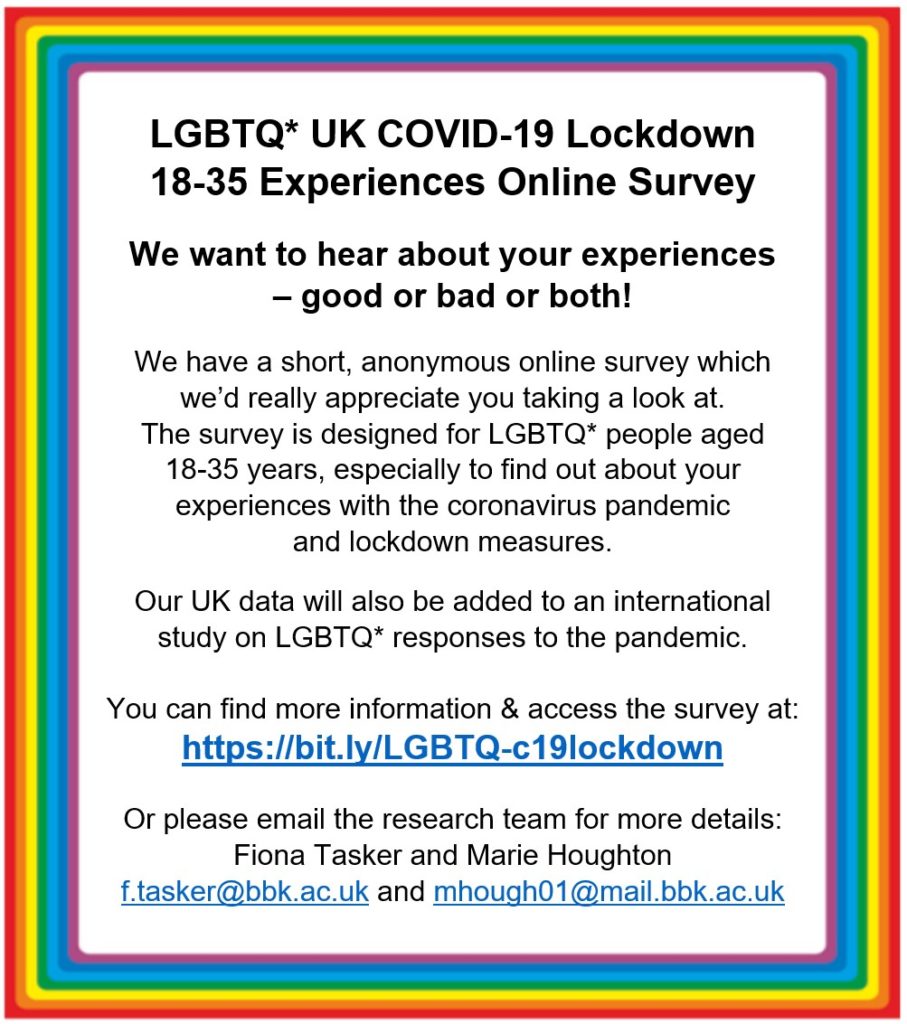
Both Love Data Week and LGBT+ History Month will return in 2021, as well as many other exciting events hosted in Birkbeck Library. Look out for updates on our News and Updates page.
